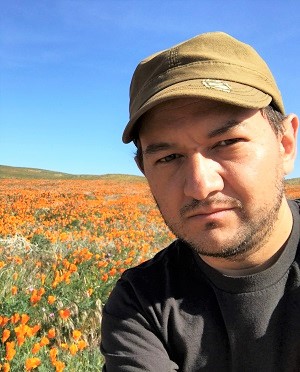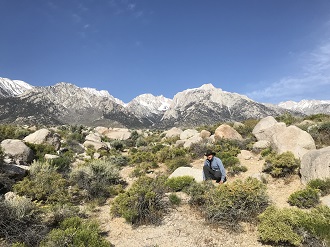About the department:
The Department of Ecology and Evolutionary Biology (EEB) at UCLA houses a large group of people doing research and teaching in a wide range of topics in ecology, evolution, behavior, and conservation. Our department has a strong focus on natural history and field biology. We even offer courses that are completely field-based and we can take students for a full quarter basically anywhere we want/can. We regularly teach field courses in Cameroon, Moorea, Australia, Peru, and throughout California.
About the research:
The questions that motivate my research revolve around understanding how evolution has generated biological diversity, in particular plant diversity. I am broadly interested in: a) discovering, documenting, and understanding species, b) examining how and why species form, multiply and diversify, and c) studying the mechanisms underpinning the amazing phenotypic variation seen across the (plant) tree of life. Research in my lab integrates multiple areas in biology, from field to computational biology.
What has been the biggest challenge as a new PI so far?
I think time management. There are so many things that now I have to do and I was not fully prepared for: meetings, administration, advising, preparing classes, mentoring, teaching, etc. And of course, I need to squeeze in time to keep doing my own research, write grants, and write papers.
Are you recruiting? If so, how do you/ will you choose new lab members?
Yes, I am always interested to hear from people who would like to join the lab. Foremost, I look for people who are genuinely interested and curious about biology. I also choose people who will fit the lab in multiple ways, from being an independent, dedicated, and respectful individual, to someone who will be a good team member and will bring new ideas/skills to the lab that can help move our research forward.
When was your first Evolution Meeting, and how did it affect your career?
2010 in Portland. It had a big influence in my career because since then it is the meeting that I try to attend every year. I really like the breadth of topics you get to see in this meeting and the amazing biology you learn about all sort of organisms.
Do you remember your first publication in Evolution or Evolution Letters (acceptance or rejection)?
Yes, it was a paper in Evolution, part of my first postdoctoral research. It was such a great and positive experience. I remember we received very challenging but insightful comments from the reviewers and AE. I think that thanks to the high quality review and feedback, our manuscript improved a lot and the main ideas became more clear and punchier.
Besides research, how do you promote science?
I am interested in collaborations with non-scientists to disseminate science to a broader audience. Last year, I participated in an academic symposium paired with visualizations and interpretations provided by artists, dancers, and musicians from Los Angeles. I worked with a puppeteer and a musician on a performance about multivariate analysis of morphology.
Do you teach evolution? What is the hardest concept to teach?
I don’t teach Evolution but I teach Plant Diversity and Evolution. In this course, I teach a module in “tree thinking” and even though several students get the idea, many students still think about evolution as progress towards something “more complex”, “better”, “advanced”, etc. I use multiple examples, videos, problem sets, and lab activities to try to make these ideas less confusing.
What book should every evolutionary biologist read?
Besides Darwin's Origin of Species, I think the 4 books from the New Synthesis (the first editions are the best): Stebbins, Dobzhansky, Simpson, and Mayr.
What one piece of advice would you give to a starting graduate student?
Work on a question that truly motivates you. If you are genuinely interested and passionate about something, you will become an independent, critical thinker, and will develop intellectual ownership of your project. The rest will come naturally (e.g., reading a lot and broadly, learning quantitative skills, finding free time to do other stuff, etc).
What one piece of advice would you give to a postdoc?
Choose an advisor who will support your career and will help you get to where you want to go.
How was your first faculty meeting?
As intimidating as I expected it. After the first couple of meetings, it got better.
What do you enjoy doing in your free time?
I enjoy outdoor activities (hiking, running, playing sports), going to concerts (all sorts of music), going to museums, cinema, and walking around LA.
 Felipe Zapata
Felipe Zapata